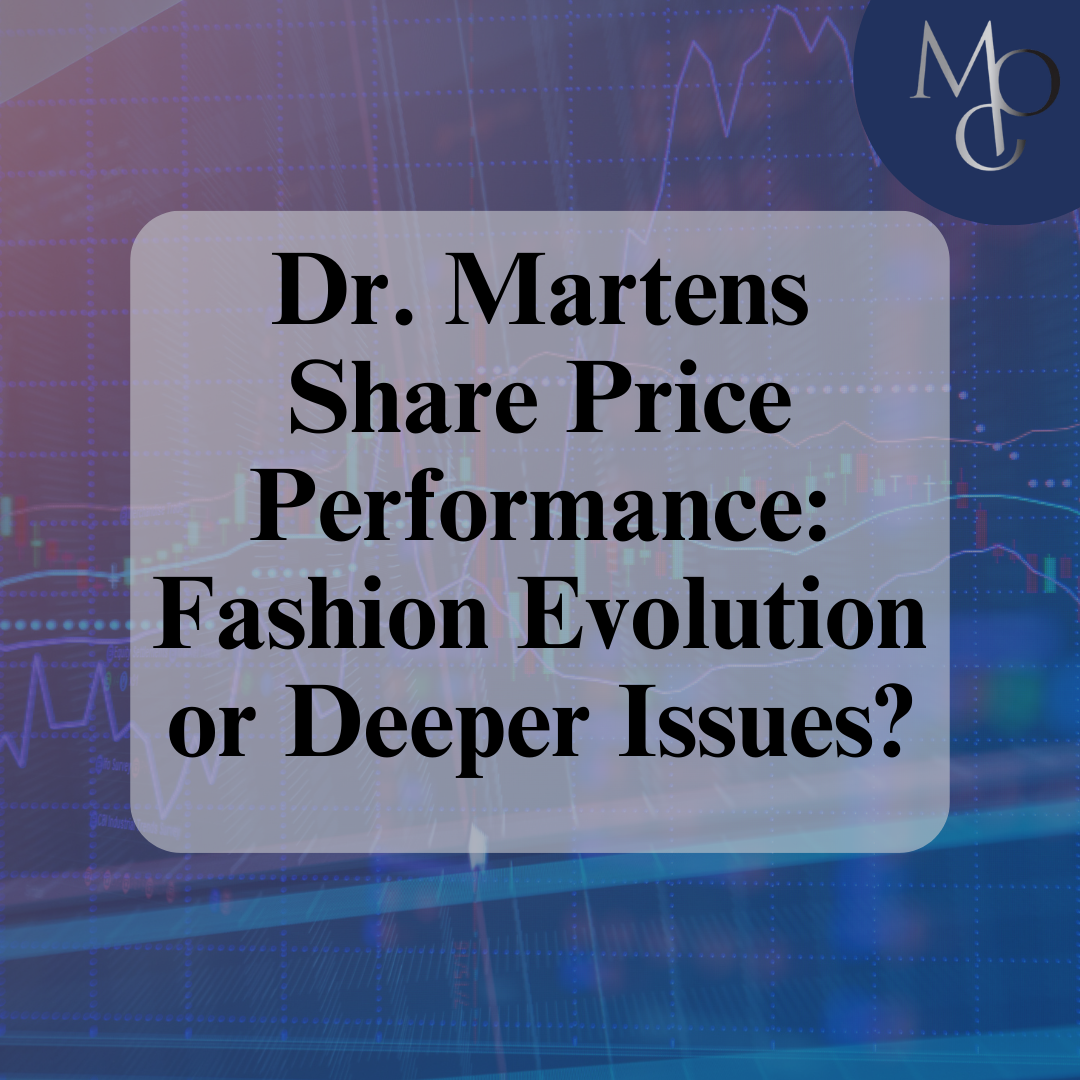
Dr. Martens share price performance
The UK retail industry has navigated a turbulent environment in recent years, facing several challenges that have reshaped industry dynamics. From evolving consumer behaviours to economic uncertainties and the lingering effects of the global pandemic, retailers have dealt with various headwinds, prompting a re-evaluation of strategies and resilience. Among the prominent names, Dr. Martens, an iconic footwear brand, has garnered attention due to fluctuations in its share price, raising questions about how the evolution of fashion has impacted its performance.
Headwinds Facing UK Retailers
UK retailers have encountered a myriad of challenges, chief among them being the paradigm shift in consumer behaviour. The advent of e-commerce and the rise of online shopping platforms have challenged the traditional brick and mortar landscape, compelling retailers to adapt quickly or be left behind. The COVID-19 pandemic further accelerated this movement, pushing consumers towards digital channels for safety and convenience.
Supply chain disruptions have been a challenge in the recent past for the retail industry. Global logistical challenges, exacerbated by pandemic lockdowns, have led to delays in production, increased costs, and difficulties in maintaining sufficient inventory levels. This has impacted both the availability and cost of goods, applying further pressure to already tight profit margins.
Economic uncertainties, including inflationary pressures and fluctuating consumer spending patterns, have added another layer of complexity. Rising inflation has led to increased prices for raw materials and transportation, affecting production costs and ultimately prices. Consequently, this has impacted purchasing power and altered consumer behaviour, forcing retailers to rethink pricing strategies.
Recovery Prospects
Despite these headwinds, some UK retailers are showing resilience and adaptability. Many have embraced digital transformation, enhancing their online presence, investing in e-commerce platforms, and leveraging technology to provide omnichannel experiences. By bridging the gap between physical and online retail, these retailers aim to meet the evolving demands of consumers who seek convenience without compromising on experience.
Additionally, some retailers have focused on sustainability and ethical practices, aligning with the growing consumer consciousness towards environmentally friendly products and responsible business practices. Brands that prioritise sustainability and social responsibility are gaining traction among consumers, positioning themselves as leaders in a changing market landscape.
The recovery prospects for UK retailers also hinge on innovation and agility. Those capable of swiftly adapting to market trends, leveraging data analytics for targeted marketing, and optimising their supply chains stand a better chance of success in a challenging environment.
Dr. Martens Share Price Performance: Fashion Evolution or Deeper Issues?
Dr. Martens, a brand synonymous with rebellious fashion and timeless footwear, has experienced fluctuations in its share price since going public in 2021, creating a debate about whether it signifies a fundamental shift in consumer preferences or merely short-term market dynamics.
Last week, Dr. Martens reported disappointing interim results. Whilst revenue was down only 5%, earnings halved compared to the same period in the year prior. Despite the interim dividend being unchanged, management issued cautious guidance for the second half of their financial year, including the possibility of cutting future dividends. As expected, investors were not impressed, and the stock closed down 21% after falling as much as 31% during the session. Dr. Martens is not the only UK retailer to suffer amidst a backdrop of high inflation and benign GDP growth. Burberry’s share price is currently down 28% year-to-date and is 45% off its all-time high in April of this year. JD Sports, ASOS and Boohoo are just some of the other UK retailers whose share prices are trading at significant discounts relative to recent highs. Whilst widespread, it is not the case across the whole industry. Retailers such as Next have shown resilience by adapting its business model, including adding to the number of brands it retails online to give customers a wider section of choice, meaning they are less likely to look elsewhere.
Whilst the performance of many household names across the UK retail industry do not paint an attractive picture of the space in the short-term, does it present investors with an attractive buying opportunity? In the six years from 2009 to 2015, the FTSE 350 General Retailers Index surged over 200% as the economy recovered, providing food for thought as the UK looks ahead towards economic growth.
Should you wish to discuss the investment options available to you at this time contact our team here.

